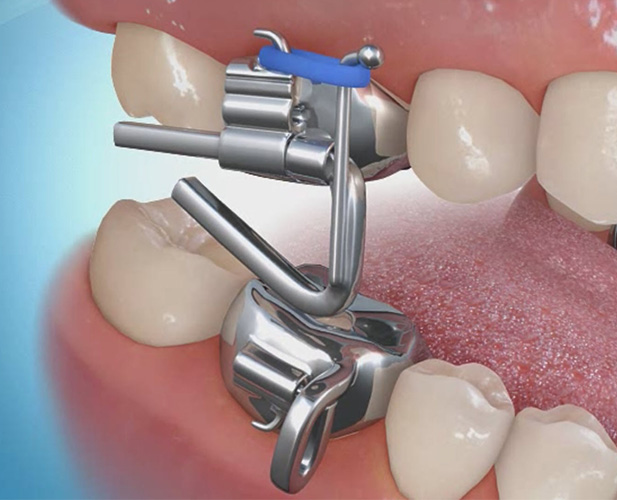Contents
- 1 Why Is It Important to Get Implant Teeth As Soon As Possible After a Tooth Extraction?
- 2 How Long After a Tooth Extraction Can a Dental Implant be Placed?
- 3 The criteria for Being Eligible for Dental Implants
- 4 How Long to Wait For Dental Implants After Extraction?
- 5 Preparation for Dental Implant Surgery
Why Is It Important to Get Implant Teeth As Soon As Possible After a Tooth Extraction?
When it comes to getting implant teeth after a tooth extraction, it is important to act as quickly as possible. The longer you wait to get an implant, the more likely it is that the bone will resorb or shrink. This can have negative consequences when it comes to placing the implant later on, as it can become more difficult or even impossible.
In addition, waiting too long to replace a missing tooth can lead to other problems as well. For instance, the surrounding teeth may shift over time, which can impact your bite and potentially even lead to further tooth loss. By opting for an implant as soon as possible, you can help preserve the overall structure and integrity of your jawbone. This is because replacing the missing tooth with an implant will provide the necessary stimulation to the bone that will help prevent it from deteriorating.
It is also worth noting that getting an implant soon after a tooth extraction can be a big boost for your confidence and self-esteem. Missing teeth can often cause feelings of embarrassment or self-consciousness, but by taking steps to replace them, you can feel more comfortable and confident in your own skin.
All of this is to say that if you have recently had a tooth extraction and are considering your options for replacement, it is in your best interest to act quickly and explore the possibility of getting an implant.
Dental implants are currently the best method to restore lost teeth. They use artificial roots made of titanium, a safe and benign material for the body. When teeth are lost, both chewing function and smile aesthetics are affected. Therefore, early dental implantation can help patients achieve better physical and mental health.
Compared to old methods such as removable jaws and porcelain bridges, implant teeth are stronger, longer-lasting, and more aesthetically pleasing. They also do not require healthy teeth to be ground away and, importantly, prevent jaw bone loss. Although the cost is higher than the other two methods, the outstanding advantages of implants make them a worthwhile investment and a popular choice among customers.
How Long After a Tooth Extraction Can a Dental Implant be Placed?
In the past, there was a considerable waiting period required for the jaw bone to stabilize after tooth extraction before a dental implant could be placed. However, with the latest advancements in dental technology, now it is possible to extract the tooth and place the implant simultaneously if there is no acute infection and the remaining bone is healthy. This not only saves time but also money for the patient.
On the contrary, if there is an infection or the condition of the jawbone is poor, the patient needs to wait for approximately 2-6 months or as directed by their doctor before proceeding with implant placement after tooth extraction. During this time, the patient may require special treatment to cure the infection or improve the quality of the jawbone.
Therefore, to determine the extract time, it is essential to visit the clinic for a direct examination with the doctor and to take an X-ray to assess the condition of the jawbone. After a thorough examination and evaluation, the doctor will provide detailed advice on your case, such as the potential risks, benefits, and alternative treatments, if applicable. Moreover, the doctor may recommend a personalized dental care plan to help you achieve optimal oral health and prevent future dental problems
The criteria for Being Eligible for Dental Implants
Good Oral Health
In order to be considered for dental implants, it is important to have good oral health. This means that your gums and teeth must be in good condition, free of any infections or other dental problems. If you have gum disease or other dental issues, you may need to have those issues resolved before you can receive a dental implant.
Adequate Bone Density
When it comes to dental implants, having sufficient bone density in your jaw is crucial. This is because the implant is anchored in the jawbone, and the strength of the bone is directly related to the success of the implant. Without enough bone density, the implant may not integrate properly with the surrounding tissue and could eventually fail. Therefore, it is important for your dentist to evaluate your bone density before proceeding with the implant procedure. If you have lost bone density in your jaw, you may require a bone graft before receiving a dental implant.
How Long to Wait For Dental Implants After Extraction?
As mentioned, to be eligible for dental implants, you need to have healthy gums and enough bone density in your jaw. Unfortunately, some people may not meet these requirements, and their teeth may not be healthy enough for dental implants. However, there are come solutions you can consider if you still want to get dental implants.
Improving Oral Health
If your teeth are not currently healthy enough for dental implants, don’t worry, there are steps you can take to improve your oral health and become a candidate in the future. One essential step is to treat any gum disease that you may have. Gum disease can weaken the tissues that hold your teeth in place and may lead to tooth loss. It is essential to address any cavities you may have before getting dental implants. Dental implants require a stable and healthy foundation, and untreated cavities can lead to further oral health issues. Additionally, addressing other oral health issues, like teeth grinding or clenching, can improve your chances of having a successful dental implant procedure. Fortunately, your dentist can provide recommendations on how to improve your oral health and prepare for dental implants. You and your dentist can work together to create a customized plan that addresses your oral health needs and helps you become a candidate for dental implants in the future.
Bone Grafting
If you have been told that you cannot have dental implants due to insufficient bone density in your jaw, there is still hope for you. A bone grafting procedure can be done to help you get the necessary bone tissue to support dental implants. This involves taking bone tissue from another part of your body or from a donor and adding it to your jaw to create a stronger foundation for the implants. The procedure is safe and effective and has been used successfully on many patients. Although the healing process can take several months, the end result is worth it because you will have a strong foundation for your dental implants. With the bone graft fully integrated, you can enjoy the benefits of dental implants, such as improved speech, easier eating, and a confident smile, which can greatly improve your quality of life. So if you are considering dental implants but are concerned about bone density, talk to your dentist about whether a bone grafting procedure is right for you.
Preparation for Dental Implant Surgery
If you are considering dental implant surgery, it is important to be aware of the necessary preparations to ensure that the procedure goes smoothly. To begin with, you should schedule a consultation with your dentist or oral surgeon to discuss your specific case and any concerns you may have. During this consultation, your dentist will evaluate the condition of your jawbone using x-rays and determine the best placement for the implants.
Additionally, before the surgery, you may need to undergo pre-treatment procedures such as bone grafting or a sinus lift to prepare your jawbone for the implants. In some cases, you may need to follow specific pre-operative instructions, such as avoiding certain medications and fasting for a certain period of time before the surgery.
Once the dental implant surgery is completed, you will need to take certain precautions to ensure proper healing and avoid complications. This may include taking prescribed medications, avoiding certain foods which can affect the healing process, and practicing good oral hygiene. It is common for patients to experience some discomfort or swelling after the surgery, however, your dental team will advise you on how to manage this.
Overall, dental implant surgery is a complex procedure and requires proper preparation before and after the surgery to ensure the best possible results. By following your dental team’s instructions closely and working together, you can minimize the risks and achieve a successful outcome.
In conclusion, dental implants are an excellent solution for replacing missing teeth, offering numerous benefits such as improved chewing function, aesthetics, and overall oral health. Although it is important to act quickly after a tooth extraction to ensure the best results, it is also important to carefully evaluate your eligibility for the procedure based on your oral health and bone density. By working closely with your dentist and following proper preparation and aftercare instructions, you can achieve a successful outcome and enjoy the benefits of a healthy, beautiful smile.















